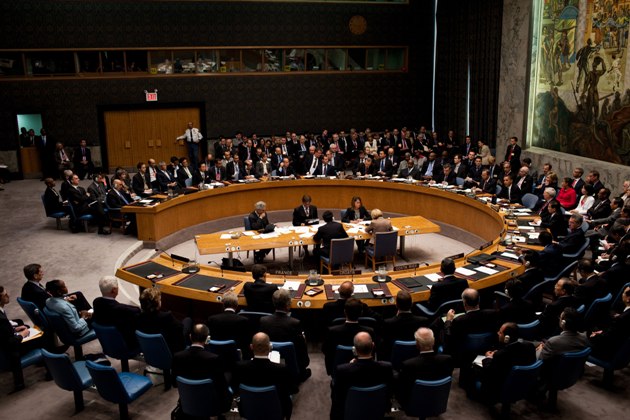UN Security Council Resolution Against North Korea Delayed
The changes on the text drafted by the United and China for a resolution to expand sanctions against North Korea caused the delay in the vote by the UN Security Council. The draft resolution was presented by the United States to the 15-country council last week.
The resolution aims to increase restrictions on North Korea following its nuclear test on January 6 and rocket launch on February 7. The sanctions will be the toughest imposed by the UN against North Korea in the last 20 years. The vote was initially scheduled on Tuesday afternoon before it was change to Wednesday morning following a request from Russia.
The change in the schedule of the vote was made after a procedural 24-hour review was invoked by Russia for the resolution. Russian ambassador to the UN Vitaly Churkin said it is a necessary resolution that should be adopted by the UN Security Council due some challenges posed by North Korea.
He added that there are some issues to be managed and they were discussed with the delegation from the United States. Churkin also said some of their concerns were accommodated.
An agreement was made between the United States and China after almost two months of negotiations to convince North Korea to discard its nuclear weapons program. Sanctions have been imposed on North Korea since 2006 after four nuclear tests and a number of rocket launches. If the sanctions were expanded, all cargo entering and leaving will be inspected and North Koreans found active in Iran, Vietnam and Syria will be blacklisted.
While the United States pushed for the adoption of the resolution by the UN Security Council last weekend, Russia insisted on additional time to study it. The draft resolution requires member-countries of the UN to inspect all cargo to and from North Korea that pass through their respective territories. Inspections were previously conducted when reasonable grounds exist on the need to inspect cargo for illegal items.

UN Security Council Resolution Against North Korea Delayed - image credit: en.wikipedia.org
The list of banned luxury products will also include aquatic recreational vehicles, luxury watchers, lead crystal items, recreational sports equipment and snowmobiles worth over $2,000. Pyongyang asserts that its February 7 launch was for peaceful purposes. The official news agency of North Korea, KCNA, said it will never change its position as a manufacturer of satellites and they will never give up space development due to sanctions imposed by someone else.
KCNA calls the proposed sanctions of the UN Security Council as an infringement on the sovereignty of North Korea. The proposal will ban the import and export of all weapons. A ban will also be imposed on items that are beneficial to the armed forces of North Korea.
The measures also include the banning of aviation and rocket fuel supplies to North Korea, expulsion of North Korean diplomats who engage in illegal activities, and blacklisting of 12 North Korean organizations and 16 individuals, including the NADA or the National Aerospace Development Agency. A number of North Korean officials may also be included in the blacklist.
While seventeen individuals were included in the blacklist of the previous draft, a representative of Korea Mining Development Trading Corporation or KOMID in Russia was removed in the latest version. Churkin said the issue is the representative is not in Russia, which is surprising why he was included in the first place.
However, the resolution of the UN Security Council will have some exceptions, such as the transshipment of Russian coal through Rajin, a port in North Korea. A railway link with the reclusive nation was reopened by Russia in 2013. The link allowed the export of coal and import of products from South Korea and other countries in Asia.
Aside from NADA, a number of other North Korean organizations will also be included in the blacklist, including the Ministry of Atomic Energy Industry, the Chongchongang Shipping Co and the Academy of National Defense Sciences. The new UN Security Council resolution will also require countries to freeze assets of entities based in North Korea with links to the missile and nuclear programs of Pyongyang as well as a ban on the opening of new offices or branches of North Korean banks.